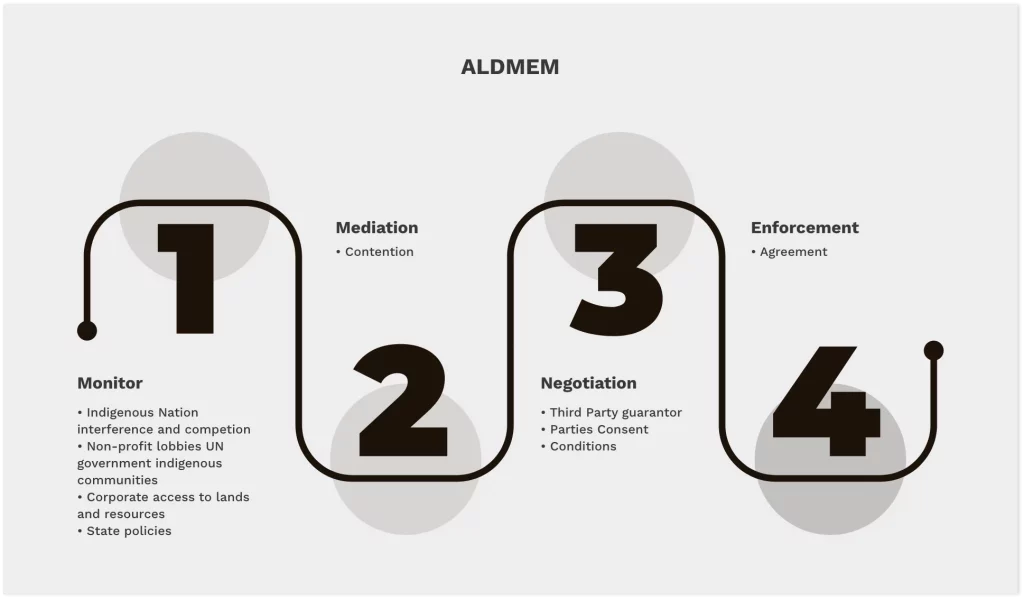What Is ALDMEM?
ALDMEM is the acronym for ancestral lands decolonization, monitoring, and enforcement mechanism.
It is a work-in-progress mechanism to actualize the enforcement of free, prior, and informed consent.
It’s a response to the enforcement problems addressed in this platform. It results from a joint effort between the Center for World Indigenous Studies (CWIS) and the National Congress of American Indians (NCAI).
Mission
Goals
• Register nation, state, corporate, and purchaser parties seeking to socially, economically, environmentally, or culturally use or extract resources from ancestral territories.
• Monitor existing territorial occupations and respond to requests for mediation between indigenous nations and other parties.
• Facilitate Third Party Guarantor participation in negotiations as an active party with a mutually determined role as monitor and enforcer of the final agreements.
• Notify prospective parties of the mediation and negotiation framework for establishing amicable relations between parties and offer venues for engagement.
• Facilitate communications about customary governance of nations, structure of corporate, state and purchaser systems.
• Facilitate communications, translation, and customary languages to maximize understanding of engagement between parties.
• Conduct Public Affairs communications in symposiums, public media releases, public conferences, and documentary releases.
How it works
Nations, States, organizations, and corporations will be able to independently join the mechanism.
By doing so, they will be subject to the way the mechanism works and will benefit from its advantages.
The mechanism has three main duties:
1. To monitor states, corporations and nations’ work to evaluate potential conflicts of interest.
2. To Mediate between parties.
3. To function as a third party guarantor in the negotiations of the agreements.


Behind the Scenes
ALDMEM will be managed by a director and organized through different departments such as: monitoring, diplomatic, communication, mediation and public affairs.
The mechanism will be independently funded and will work through a cooperative agreement between indigenous nations, states, non-governmental organizations and corporations.

